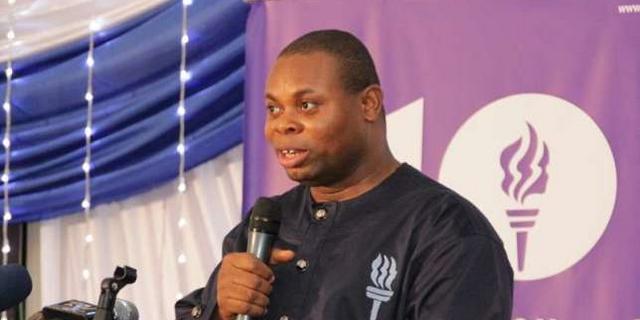Franklin Cudjoe, the founder of IMANI Africa, has expressed his discontent with the prevalent notion that the Electoral Commission (EC) of Ghana should be excused for its mistakes due to being a human institution. He finds this perspective to be not only irritating but also fundamentally flawed. Cudjoe emphasizes that the errors committed by the EC are not accidental but rather intentional and threatening to the electoral integrity. He highlights a recent incident where a specific group of candidates was disqualified from the electoral process due to alleged errors in their submission forms. He poses a rhetorical question, questioning why the EC does not extend the same leniency to them as they expect for themselves, indicating a clear double standard in the treatment of electoral participants.
Cudjoe’s frustration peaks with the situation regarding the disenfranchisement of the people within the SALL (Some Districts in the Ahafo Region). He reveals that his efforts to advocate for these individuals were met with resistance from the EC rather than the expected acknowledgment of the mistakes made. Instead of receiving a formal apology for the disenfranchisement, the EC appeared to fester ongoing conflict with those seeking justice for the disenfranchised citizens. According to Cudjoe, this indicates a deeper issue with the EC’s accountability and its relationship with the citizens it is meant to serve.
He further comments that as a consequence of these experiences, his trust in the EC has been severely undermined. Cudjoe argues that the lack of transparency and fairness has contributed significantly to this erosion of trust, complicating interactions between the commission and the citizens. While he acknowledges there might be a fraction of the populace that still possesses faith in the EC’s operations, he remains skeptical about its overall decision-making process. Cudjoe suggests that the situation reflects a broader problem within the electoral framework, where institutions are not only failing to uphold standards but also jeopardizing the democratic rights of citizens.
In Cudjoe’s view, it is vital for the public to maintain a vigilant stance regarding the activities and declarations of the Electoral Commission. He believes that awareness and active participation are essential in ensuring electoral integrity and accountability. This vigilance can empower citizens to demand the necessary standards and improvements within the electoral process. By encouraging a proactive approach, Cudjoe argues that Ghanaians can better protect their democratic rights, ensuring that mistakes made by the EC—whether intentional or not—are appropriately addressed and rectified.
Furthermore, Cudjoe’s perspective highlights a critical discourse in Ghana regarding the performance and accountability of electoral institutions. His passionate stance advocates for greater scrutiny and engagement with the electoral process, especially in an era where democratic participation is more crucial than ever. As the electoral cycle approaches, he calls for stakeholders at all levels to prioritize transparency, diligence, and responsiveness from the EC to foster a healthy democratic environment where all voices are heard and represented.
In conclusion, Franklin Cudjoe’s commentary serves as a powerful reminder of the necessity for accountability in electoral bodies, emphasizing that citizens should not accept a status quo that tolerates electoral errors as mere human fallibility. Instead, he implores fellow Ghanaians to remain vigilant and proactive in advocating for their rights, ensuring that the integrity of the electoral process is preserved. As Ghana navigates its electoral landscape, these dialogues become essential in shaping a robust democratic society where institutions like the Electoral Commission are held accountable for their actions, fostering trust and respect between them and the citizens they serve.














